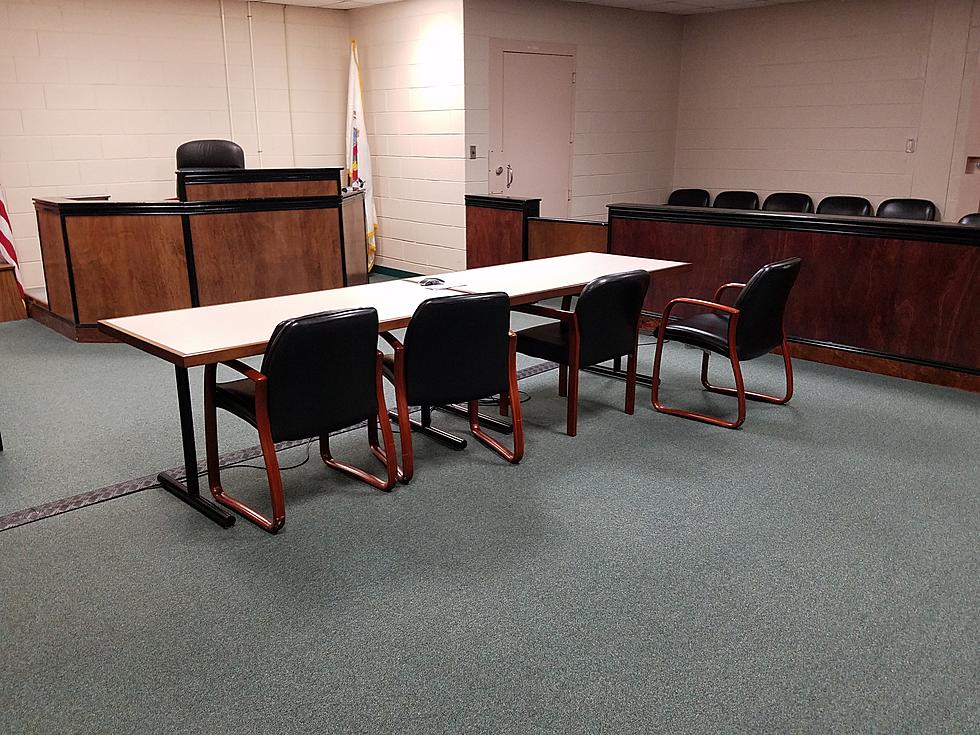
No more $600K checks? NJ may tighten cap on sick-leave payouts
TRENTON — Lawmakers are making another bid at capping payouts to retiring public workers for their unused sick leave, advancing a plan to cap their value at $7,500 going forward, to be paid out not as cash but as health-care savings.
State workers’ sick-leave payouts have long been capped at $15,000. Since 2010, the same limit has applied to newly hired employees of counties, municipalities and school districts. The latest bill applies to current workers, for future sick days.
Assemblywoman Pamela Lampitt, D-Camden, said $1.9 billion in liabilities for unused sick leave has been accumulated statewide. She expressed willingness to change the bill, which has picked up another significant sponsor – Speaker Craig Coughlin, D-Middlesex.
“I believe that sick days are days for people to utilize when they are working. This is something that we provide, but I don’t think they should have any cash value,” Lampitt said. “I’m at zero, to be honest with you.”
The bill approved by an Assembly committee:
- Prohibits payments for unused sick leave earned after the law takes effect, which would be on the first day of the second month after its enactment.
- Doesn’t affect payouts for sick leave already banked, which the state Office of the Attorney General says can’t legally be altered.
- Eliminates the monetary value of future unused sick leave for any unionized workers whose accumulated leave is worth $7,500 or more and for all non-union workers.
- Provides additional benefits to union workers whose accumulated sick leave is worth less than $7,500, payable not as cash but rather applied to the retiree’s share of their health insurance premium.
- Creates a health savings account, capped at $7,500, for retirees who don’t get state health benefits, which can be used to pay for medical expenses for five years.
- Continues to provide a cash sick-leave payout, capped at $7,500 going forward, to any military veterans who receive health coverage through the U.S. Department of Veterans Affairs.
- Limits the carry-forward of unused vacation days to one successive years for all public workers.
Unions argued against the change but didn’t slow its advance.
Robert Fox, president of the New Jersey Fraternal Order of Police, suggested that workers be allowed to cash in unused sick days each year to help cover their payment toward health care premiums. He cited an annual cash-in plan in Clementon, which he likened to a Christmas Club, and said it encouraged perfect attendance by police officers.
“These guys earn it. These guys are going to use it, believe me. They’re not going to walk away and leave a hundred sick days on the books,” Fox said.
Fox said police officers or firefighters whose sick days are valued near or over the $7,500 cap will be inclined to take sick days if they’re less than 100 percent, or even on rainy days when they’re not sick, rather than push things.
“And he’ll call in sick, and he’ll be replaced at somebody for time a half,” Fox said. “So it’s just shifting the money. It’s like a little bit of a shell game. You pay for it now or you pay for it later.”
Donna Chiera, president of the American Federation of Teachers New Jersey, said some public workers use the sick-day cash-out as a savings account to supplement their pensions and Social Security.
“I also know people who retired and used that money – honestly, and I know we want to keep people in New Jersey, but to put a down payment on a house in one of the Carolinas because on their pension and their Social Security, they just can’t afford to live in New Jersey,” Chiera said.
Since mid-2010, all newly hired county, local and school-district employees have had a $15,000 limit on payouts for unused sick leave, the same as has long applied to state workers, but it will take decades for that to cover all workers.
Unions say the issue was already addressed through collective bargaining for rank-and-file workers and that the abuses come from political appointees.
Only 10 to 12 contracts of the thousands negotiated by the Communications Workers of America have caps over $15,000, with none over $20,000, said CWA staff representative Seth Hahn. He said the average payout is less than $10,000.
“We consider this a fairly modest retirement benefit, not something that is bilking taxpayers,” Hahn said.
“There’s not a single union employee who is getting a huge payout,” he said. “So we would say deal with those people. Deal with the actual problem instead of lumping the people who work hard for the state and for the public sector every day in with the bad actors who are overwhelmingly political appointees.”
The proposal interferes with collective bargaining, said Ginger Gold Schnitzer, director of government relations for the New Jersey Education Association. She said that a survey of NJEA locals’ contracts shows 89 don’t specify a sick-leave payout cap, 92 are at $7,500 or less, 333 are between $7,501 and $15,000 and 44 are higher than $15,000.
“It is an attack on collective bargaining, and by extension, it is an attack on the sustainability of the middle class,” Schnitzer said.
Lawmakers passed a bill in 2010 that would have applied the $15,000 cap to future sick-leave benefits earned by workers who were on the job before 2010, but then-Gov. Chris Christie vetoed it, saying the payouts should be ended entirely.
Lampitt then tried for the $7,500 compromise, which unions reluctantly backed.
“When you’re faced with nothing, or the chance to work with somebody and maybe be able to bargain something, then you have that conversation,” Schnitzer said. “But the truth of the matter is that that’s not the environment today.”
"Boat checks" have often been big news in New Jersey. In July, Bayonne's police chief retired with arrangements to receive $291,004 over two years for unused time, NJ.com reported. The city's current public safety director collected $320,000 when he retired as chief in 2012.
In 2011, the former head of Long Branch public schools exited with $600,000 in payouts for unused time, boasting he was never out sick a day in his life, The Asbury Park Press reported.
Every time a police chief retires with a big payout, a bill gets introduced in Trenton, said Patrick Colligan, president of the New Jersey State PBA. He said public workers don’t get “boat checks” and that the term popularized by Christie is offensive and no longer applies.
“I am befuddled to see a Democratic Legislature and a Democratic governor and have to deal with this in my inbox, that there’s now a $7,500 cap on our sick time,” Colligan said. “This is legislated negotiations. I’m ready to cancel my collective bargaining that I hold every March because it’s a moot point any more.”
The Assembly State and Local Government Committee unanimously advanced the bill, A1851.
Its Democrats did so after expressing sympathy for the union leaders’ points and a hope that the bill is amended. Assemblywoman Verlina Reynolds-Jackson, D-Mercer, said it’s almost like the state is renegotiating union contracts, which she calls unfair.
“Sometimes what happens is we’re so busy looking at the bottom, we forget to look at the top. And those high payouts are coming from the top,” Reynolds-Jackson said.
Assemblyman Vince Mazzeo, D-Atlantic, said the Legislature is being forced to act by the payments seen in some towns. He acknowledged that recent years have been tough for public workers.
“But the other thing, too, is New Jersey is tough with the property taxes, and we need to look at the taxpayers as well,” Mazzeo said.
Assemblywoman Angela McKnight, D-Hudson, said unused sick days cannot be converted to cash in the private sector.
“To have someone bank all of these hours and then at the end, they get this huge cash payout, it’s not fair to the public.”
More From 92.7 WOBM










